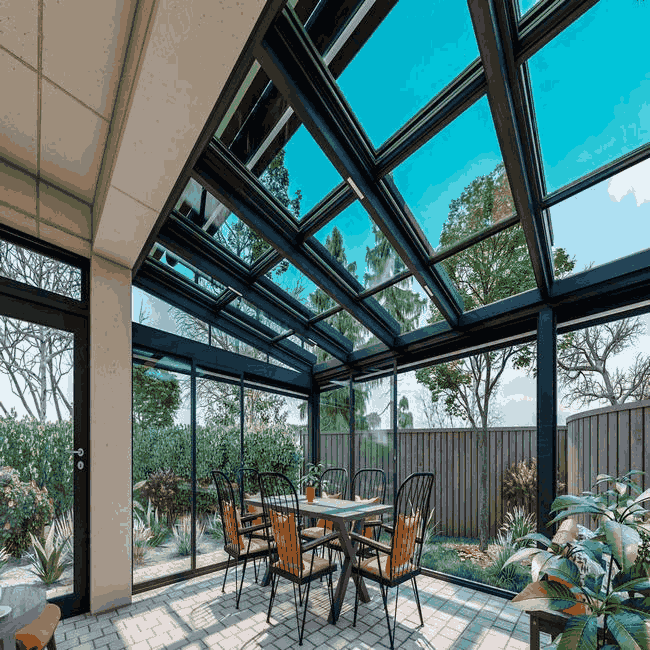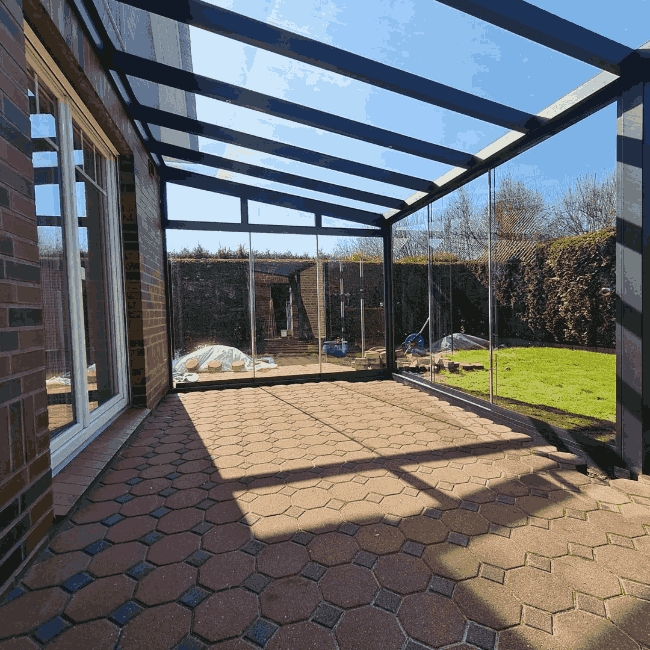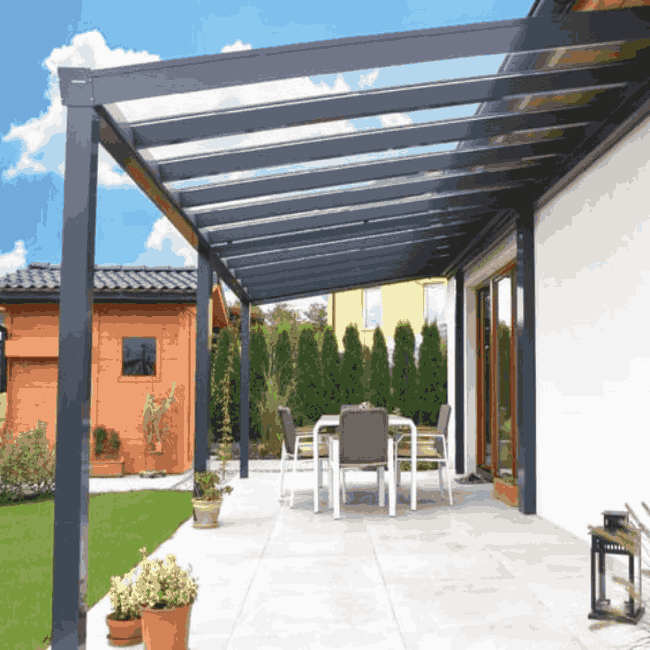Discover premium glass ceilings for winter gardens, terraces, and commercial spaces. Waterproof, motorized, and customizable for style, comfort, and light.
| Products | Size | Price | Material |
|---|---|---|---|
| Pergola | Under 10m² | 110 € | Motorized |
| Awning | Above 20m² | 110 € | Motorized |
| Zip Curtain | 9m² | 900 € | Local Fabric |
| Bioclimatic Pergola (Piston) | Under 20m² | 350 € | Motorized |
| Rolling Roof (Scissor) | Above 25m² | 300 € | Motorized |
| Glass Ceiling | Under 10m² | 250 € | - |
| Winter Garden | Under 10m² | 300 € | Motorized |
| Aluminum Ceiling | Above 20m² | 350 € | Motorized |
| Heat Glass Sliding | Under 10m² | 110 € | - |
| Sliding Glass | Above 10m² | 110 € | - |
| Guillotine Glass | Unit | 65 € | Motorized |
| Double Opening Awning | Above 20m² | 110 € | Motorized |
| Single Carport | - | 6500 € | Motorized |
| Double Carport | - | 8500 € | Motorized |
| Bioclimatic Ceiling | Under 10m² | 350 € | Motorized |
| Terrace Roof Pergola | Under 10m² | 65 € | Motorized |
What is a Glass Ceiling?
A glass ceiling is an architectural element that primarily functions as a transparent or translucent roof system, allowing natural light to flood a space while providing protection from the elements. Unlike conventional roofs, a glass ceiling combines aesthetic appeal with functional advantages, making it a popular choice for residential spaces, terraces, and indoor-outdoor extensions. Its primary purpose is to maximize daylight usage, reduce the need for artificial lighting, and create an airy, open atmosphere that enhances the visual and psychological comfort of the space beneath it. Modern glass ceilings often integrate advanced materials that offer thermal insulation, UV protection, and energy efficiency, turning them into more than just decorative features—they become a functional part of sustainable architecture.
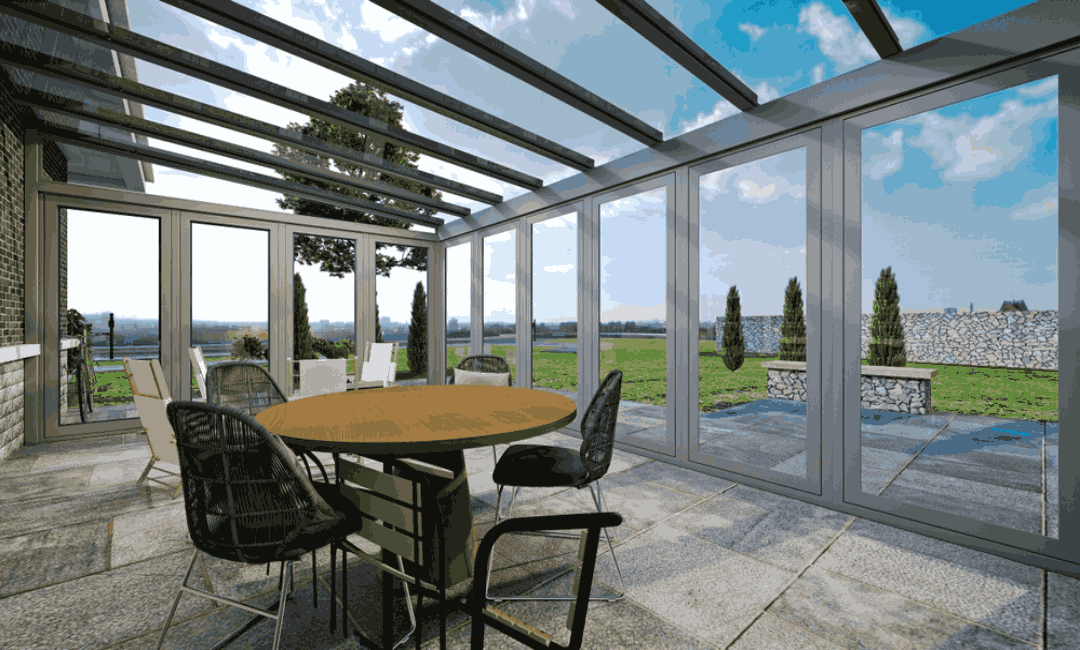
What is a Glass Ceiling and What is it Used For?
A glass ceiling is not merely a decorative installation; it serves multiple practical functions. It is used to extend indoor living spaces, transform terraces into usable rooms regardless of weather, and create a visual connection with the outdoors. Beyond residential use, glass ceilings are common in restaurants, cafes, commercial atriums, and winter gardens, providing natural illumination and a sense of openness that conventional roofs cannot match. Additionally, they can be equipped with ventilation mechanisms, shading systems, and smart controls to enhance comfort, making them suitable for year-round use.
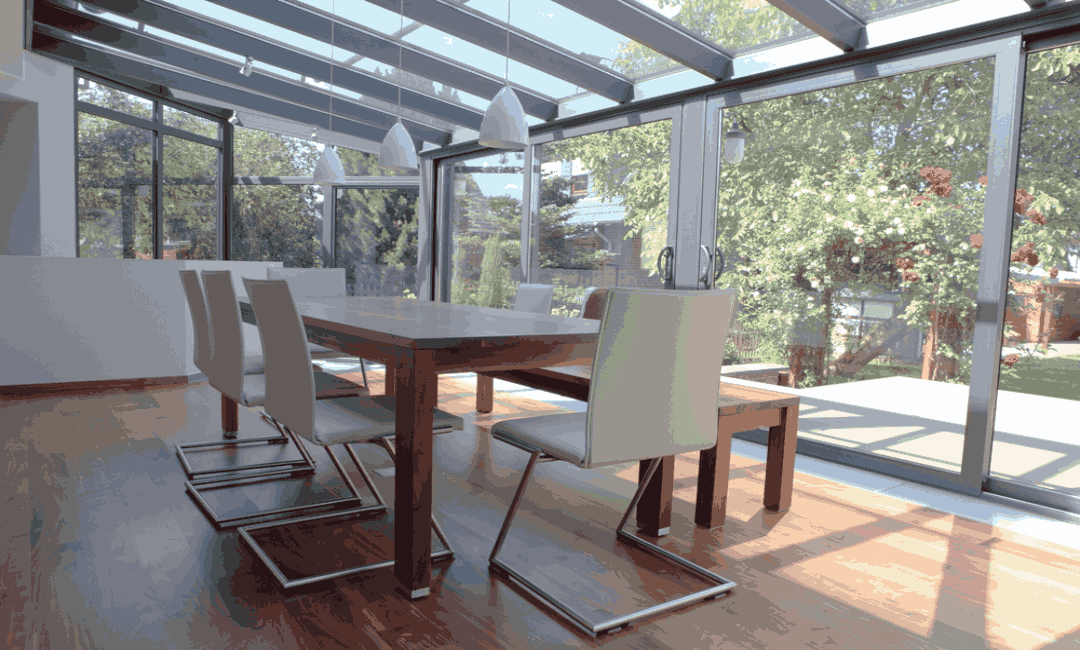
What are Glass Ceiling Models?
Glass ceiling models vary in terms of structure, mobility, and materials. They are generally classified based on whether the panels are fixed or movable. Fixed models are designed for stability and durability, while movable or retractable models offer flexibility, allowing users to open or close sections as needed. Materials used include tempered glass, laminated glass, and reinforced aluminum or steel frames, each offering different benefits such as safety, energy efficiency, and design versatility. The variety of models allows for customization according to climate, building structure, and aesthetic preference.
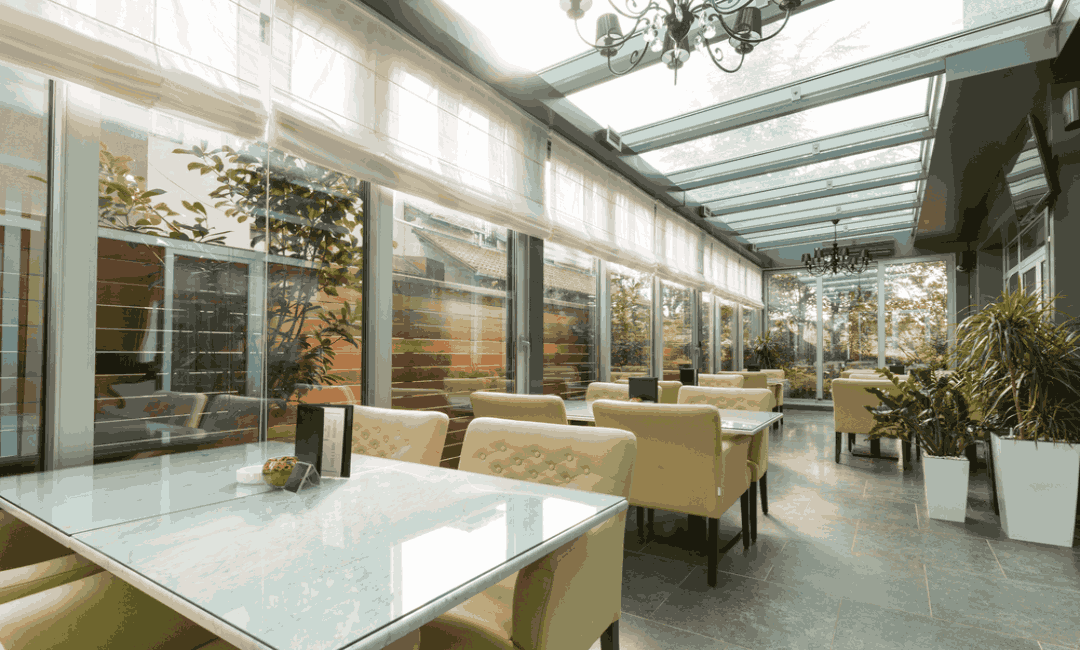
What are Movable Glass Ceiling Models?
Movable glass ceiling models are engineered for flexibility. They allow users to slide, fold, or tilt panels to control sunlight, ventilation, or exposure to rain and snow. These systems are ideal for areas where seasonal adjustment is important, such as terraces or winter gardens. Mechanisms for operation can be manual or motorized, and modern systems often include smart sensors that respond to weather changes. The design of movable glass ceilings ensures that even with an open configuration, the structure remains secure, weatherproof, and durable, blending convenience with high-end functionality.
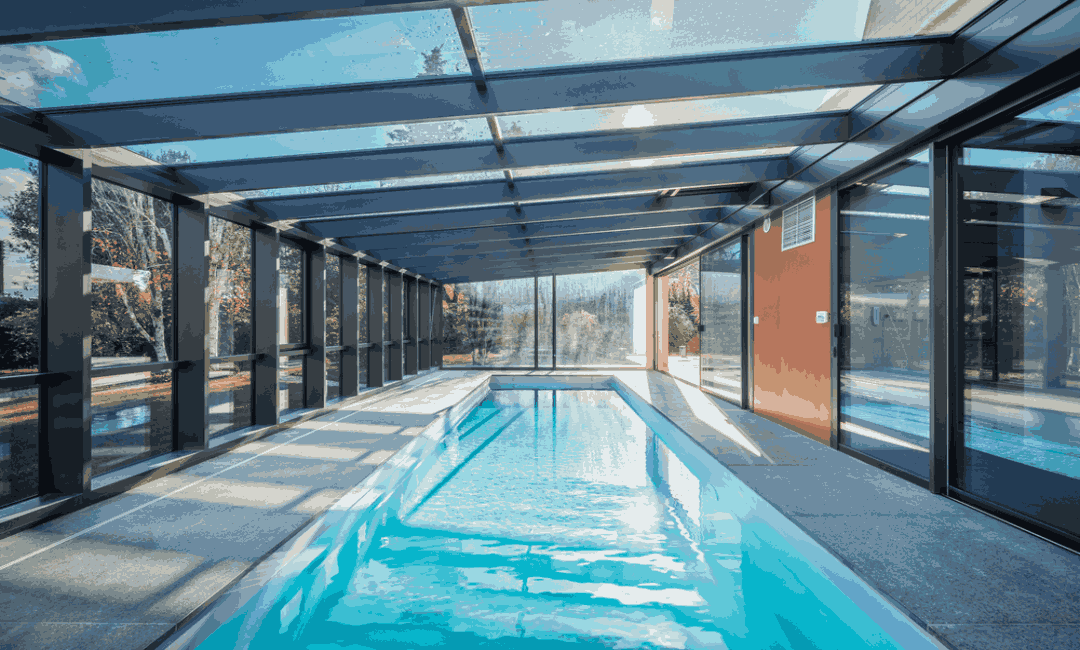
What are Fixed Glass Ceiling Models?
Fixed glass ceilings are permanent installations designed to offer maximum structural integrity and insulation. Unlike movable models, they do not allow panels to open but provide superior stability, noise insulation, and energy efficiency. Fixed glass ceilings are commonly used in commercial buildings, atriums, and areas with extreme weather conditions, where long-term durability is a priority. They often include coatings or laminates that reduce UV exposure, prevent heat loss, and enhance safety, ensuring a maintenance-free, long-lasting architectural solution.
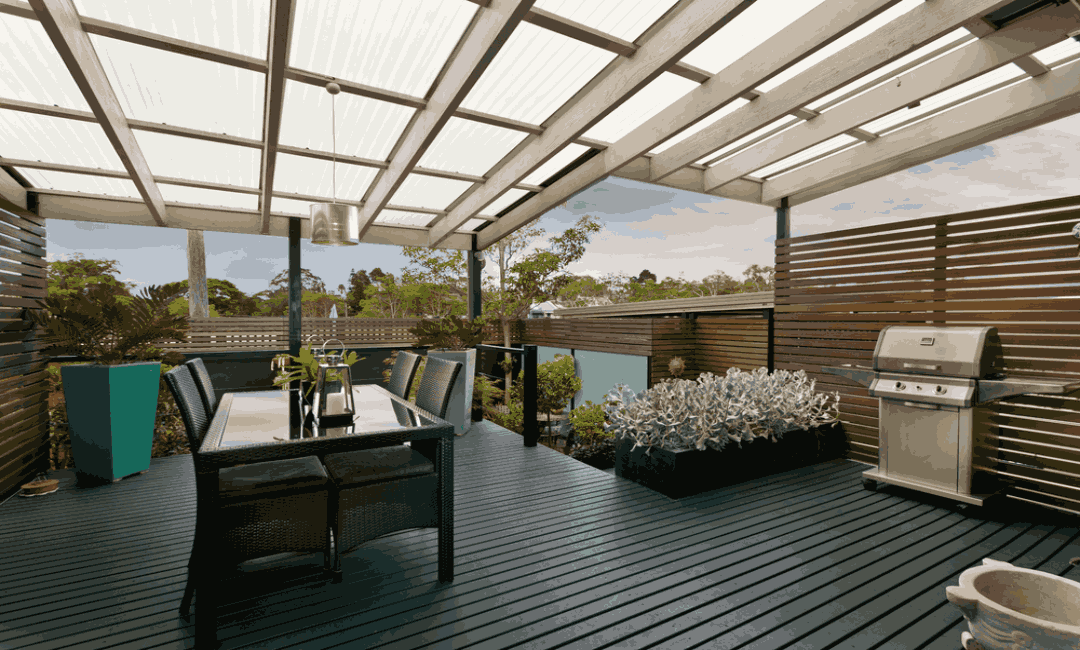
What are the Features of a Glass Ceiling?
Modern glass ceilings come with a wide array of features:
-
Thermal Insulation: Reduces energy costs and maintains interior comfort.
-
UV Protection: Prevents harmful radiation from entering living spaces.
-
Acoustic Control: Reduces noise from rain, wind, or urban surroundings.
-
Safety Laminated Glass: Ensures shatter-resistance and protection.
-
Smart Controls: Enables automatic opening, closing, or shading.
-
Customizable Frames: Aluminum, steel, or composite frames tailored to design preferences.
-
Integration with Bioclimatic Systems: Works in synergy with climate-adaptive technologies to regulate temperature and airflow.
What are the Differences Between a Bioclimatic and a Glass Ceiling?
While a glass ceiling focuses on transparency, daylight, and aesthetic appeal, a bioclimatic system prioritizes climate adaptability. Bioclimatic ceilings include adjustable louvers or panels that automatically regulate sunlight, airflow, and energy efficiency. In essence, a bioclimatic pergola system is a more advanced, responsive version of a glass ceiling, designed for sustainable architecture. A standard glass ceiling may require manual shading or ventilation, while bioclimatic solutions can respond intelligently to environmental conditions, offering a combination of comfort, energy savings, and modern design.
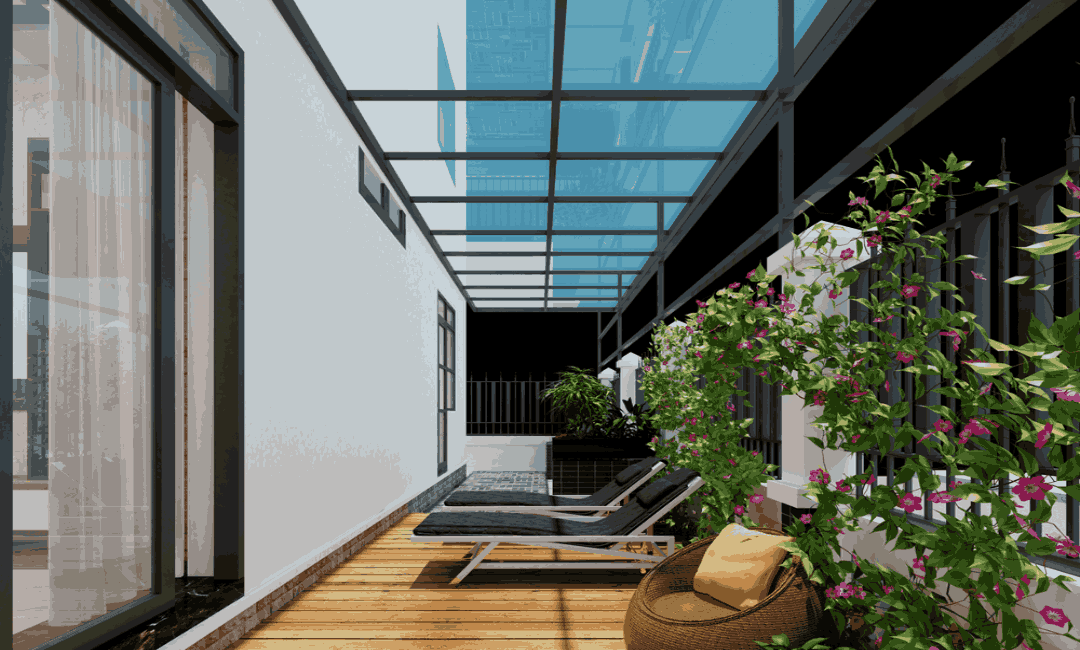
What is a Glass Ceiling and What is it Used For?
Reiterating, a glass ceiling is a multi-functional architectural solution used to enhance interior lighting, aesthetic value, and space usability. It can transform otherwise underutilized areas into functional spaces, extend living areas, and provide visual continuity with the outdoors, allowing natural scenery to remain part of the interior experience. Its application ranges from residential patios to commercial atriums, making it a versatile option for anyone seeking light, style, and functionality.
Is It Advantageous to Have a Glass Ceiling Built?
Yes, installing a glass ceiling comes with numerous advantages:
-
Increased natural light reduces the need for artificial lighting.
-
Aesthetic upgrade that enhances property value.
-
Extended living or working space, usable year-round.
-
Energy efficiency when combined with insulated or low-emission glass.
-
Weather protection while maintaining a connection with nature.
The combination of visual appeal, functional performance, and long-term durability makes a glass ceiling a strategically advantageous investment for both homes and businesses.
What is a Bioclimatic Glass Ceiling System?
A bioclimatic glass ceiling system is an advanced form of glass ceiling equipped with adjustable louvers or motorized panels that respond to environmental factors such as sunlight, wind, and rain. These systems optimize temperature, airflow, and energy usage automatically, providing maximum comfort without manual intervention. They are particularly ideal for luxury homes, terraces, restaurants, and winter gardens where style, functionality, and climate responsiveness are equally important.
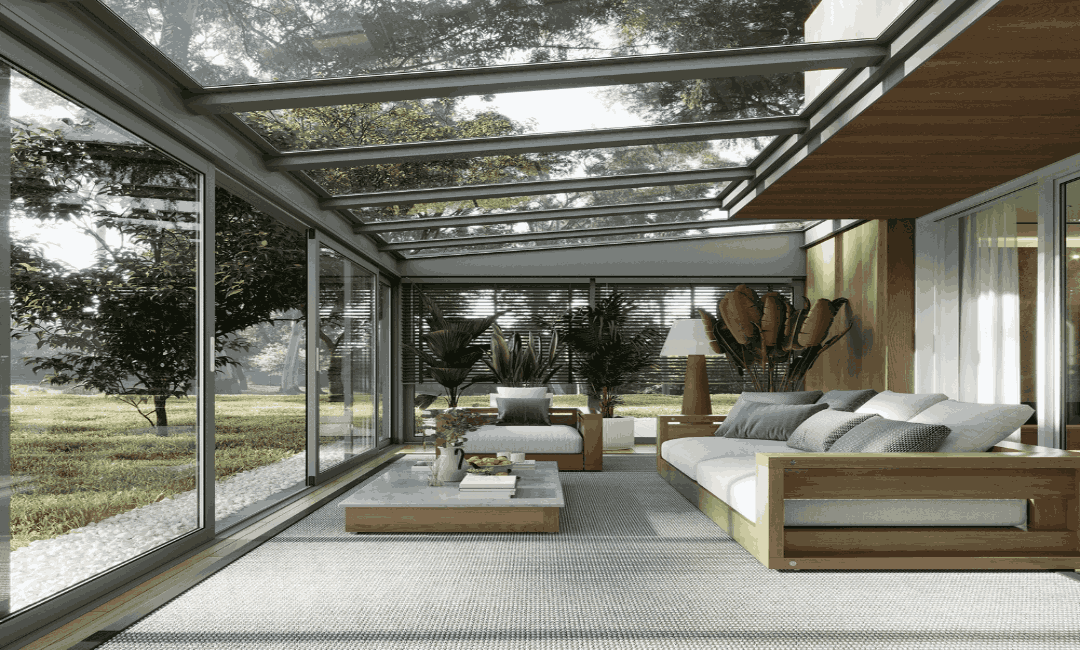
Glass Ceiling… But Which Brand? / Highlight Our Glass Ceiling Company
When choosing a glass ceiling, brand reputation, product quality, and service reliability are critical. Selecting a company with proven expertise in design, installation, and after-sales support ensures long-term satisfaction. Our glass ceiling company stands out for its high-quality materials, custom designs, and precision installation, making every project a blend of beauty and functionality. Choosing the right brand guarantees durable, safe, and visually appealing installations that meet your specific needs.
Glass Ceiling System Manufacturers in Turkey
Turkey is home to several reputable glass ceiling system manufacturers, offering a wide range of products from fixed and movable models to bioclimatic solutions. Manufacturers in Turkey are recognized for combining European design standards with competitive pricing, producing systems that are durable, stylish, and adaptable to different climates. When evaluating manufacturers, consider material quality, technical support, warranty, and customization options to ensure a glass ceiling that meets both aesthetic and functional requirements.
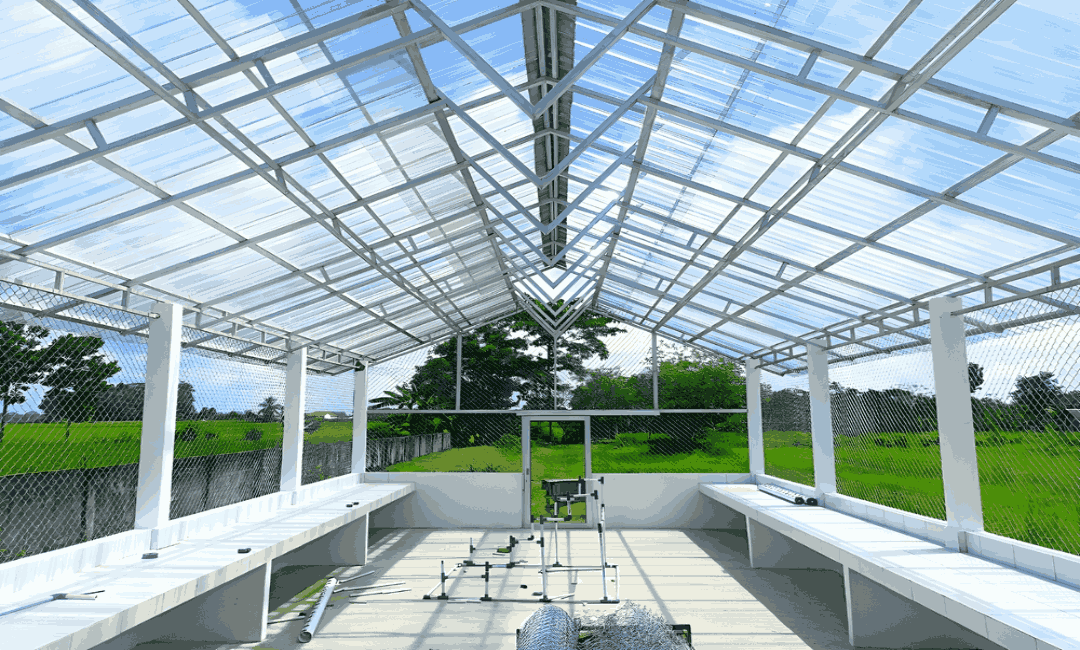
Glass Ceiling… But Which One Should I Choose?
Choosing the right glass ceiling depends on usage, design preferences, and environmental conditions. Fixed models are ideal for permanent structures, while movable or bioclimatic systems suit areas requiring flexibility and climate control. Factors to consider include glass thickness, insulation properties, frame material, and integration with smart technologies. Ultimately, selecting a solution that balances aesthetic appeal, comfort, and energy efficiency ensures that your investment in a glass ceiling provides long-term satisfaction and enhanced architectural value.
Is a Glass Ceiling Waterproof?
A glass ceiling is designed to protect spaces from weather elements while maintaining visual transparency. High-quality systems feature tempered or laminated glass panels that are completely waterproof when properly installed, preventing water leakage even during heavy rain. Seals, gaskets, and precision-engineered aluminum or steel frames enhance waterproof performance. Additionally, bioclimatic glass ceilings may incorporate sloped designs or drainage channels that further ensure water is directed away from the structure, keeping terraces, winter gardens, and indoor-outdoor living areas dry. Modern systems combine waterproofing with ventilation and durability, providing protection without compromising aesthetic transparency.
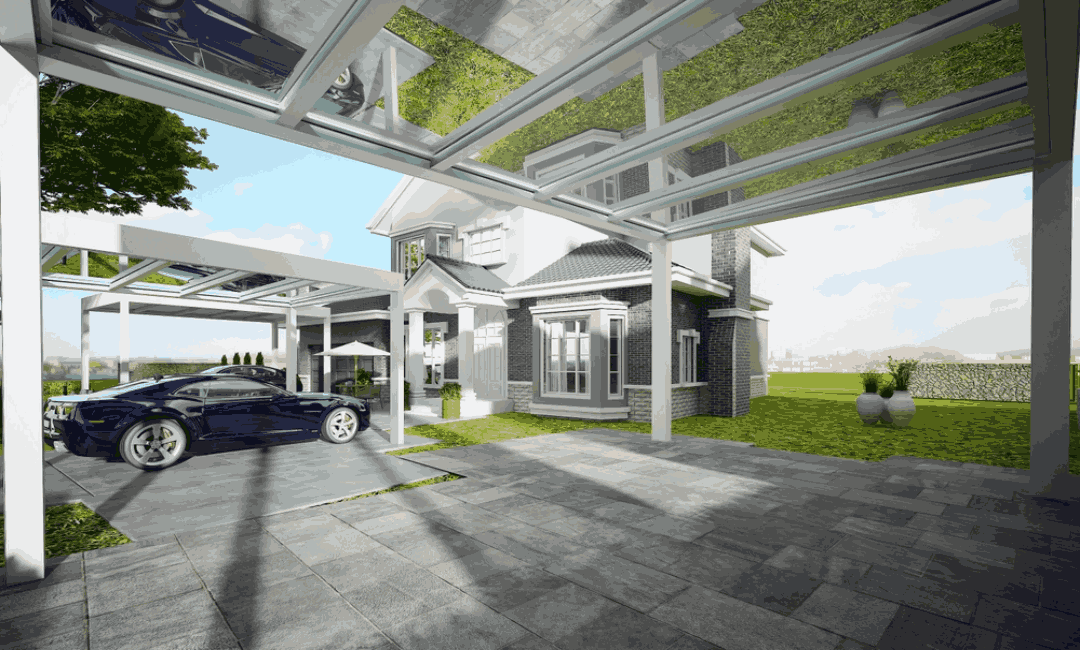
Glass Ceiling Manufacturers… But Which One? Highlight Us as an Istanbul Company
When choosing a glass ceiling manufacturer, quality, experience, and customization options are crucial. Our Istanbul-based company specializes in designing, manufacturing, and installing premium glass ceilings for residential and commercial projects. We emphasize durable materials, precision engineering, and aesthetic harmony to meet the unique demands of winter gardens, terraces, and luxury spaces. Selecting the right manufacturer ensures a long-lasting, functional, and visually appealing installation, with expert support for maintenance, warranties, and adjustments. With Istanbul’s combination of innovation and craftsmanship, our solutions stand out for both quality and style.
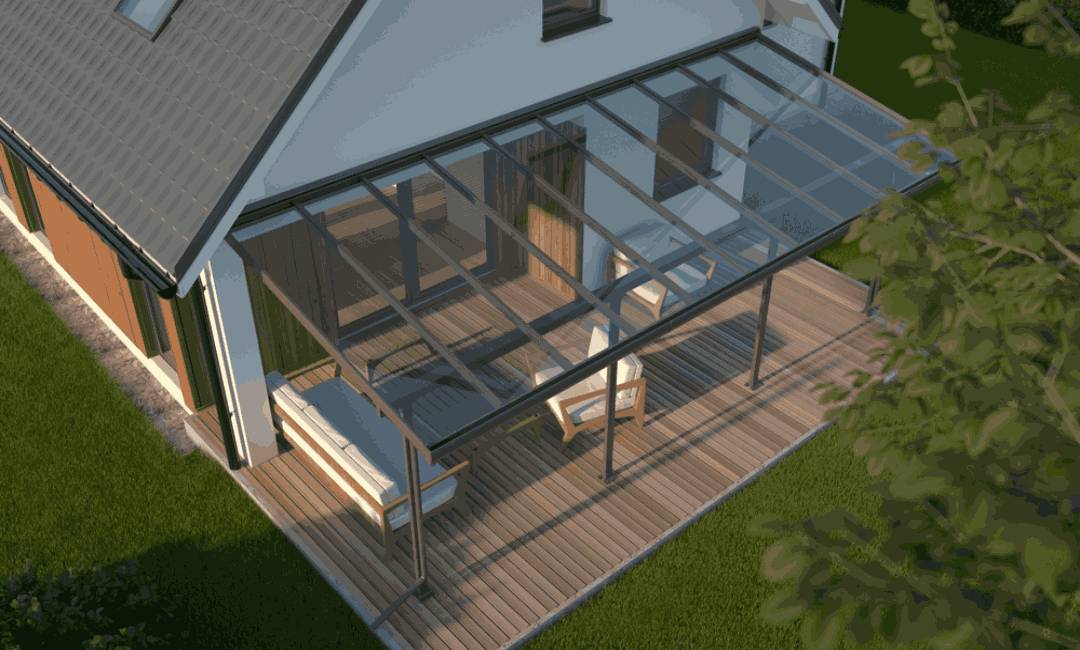
What are the Technical Features of a Glass Ceiling?
Modern glass ceilings are engineered with multiple technical features to enhance safety, efficiency, and comfort:
-
Tempered or Laminated Glass: Provides strength, safety, and shatter resistance.
-
Aluminum or Steel Frames: Lightweight yet robust support for long-lasting durability.
-
UV Protection: Reduces harmful solar rays and prevents interior fading.
-
Thermal Insulation: Maintains interior temperature, lowering energy consumption.
-
Motorized Operation: Enables automated opening and closing for ventilation.
-
Sealed Gaskets and Drains: Ensure waterproofing even under heavy rain.
-
Customizable Shapes and Sizes: Fits terraces, winter gardens, and complex architectural designs.
These features make glass ceilings both functional and luxurious, transforming any space into a bright, elegant, and weather-protected area.
Is It Advantageous to Have a Glass Ceiling Built?
Yes, building a glass ceiling offers multiple benefits:
-
Enhanced Natural Light: Creates bright and welcoming spaces.
-
Year-Round Usability: Protects terraces and winter gardens in all seasons.
-
Aesthetic Value: Adds elegance and modern style to the property.
-
Energy Efficiency: Reduces reliance on artificial lighting and heating.
-
Versatility: Suitable for homes, cafes, restaurants, hotels, and event spaces.
A well-designed glass ceiling elevates both comfort and property value, making it an attractive investment for homeowners and business owners alike.
Why Should You Have a Glass Ceiling System Installed?
Installing a glass ceiling system allows for maximum visual openness, comfort, and functional flexibility. These systems enhance living areas by merging indoor and outdoor spaces, providing panoramic views, natural daylight, and climate protection simultaneously. They can be fixed, motorized, or bioclimatic, depending on the user’s needs. Beyond residential benefits, glass ceilings are excellent for commercial venues, offering a stylish ambiance, natural lighting, and a premium experience for visitors or customers. Their long lifespan and minimal maintenance make them a practical yet elegant architectural solution.
What are the Usage Areas of a Glass Ceiling? (Homes, villas, cafes, restaurants, workplaces, wedding venues, pools, hotels, terraces, hospitals.
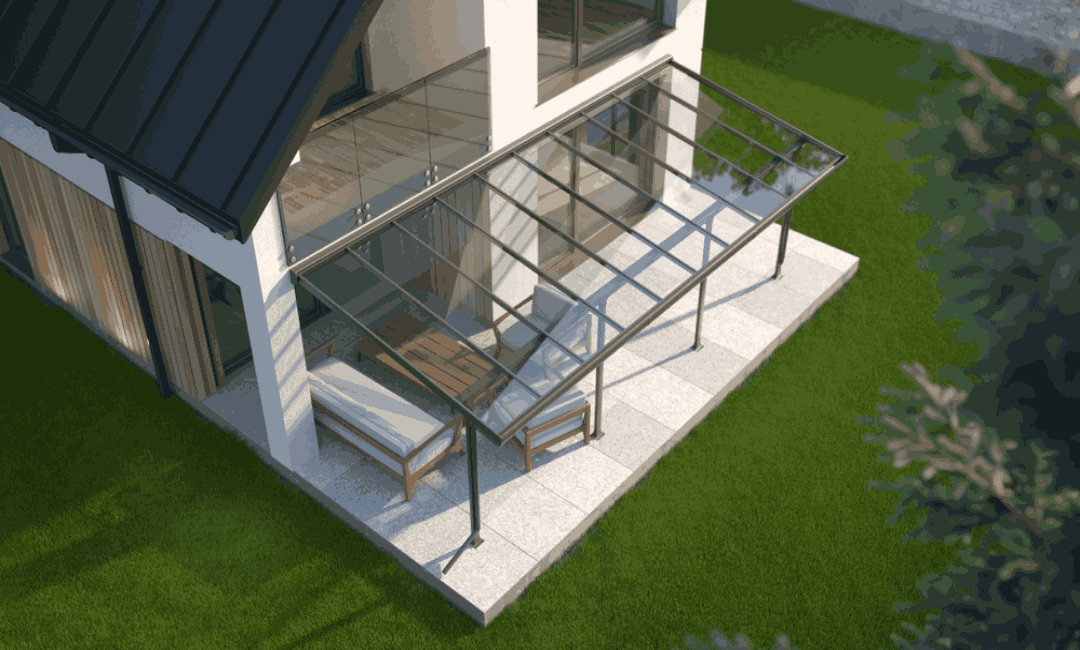
Glass ceilings are versatile and widely applicable:
-
Homes & Villas: Brighten living rooms, winter gardens, and rooftop terraces.
-
Cafes & Restaurants: Create inviting spaces with natural lighting for guests.
-
Workplaces: Improve employee well-being and reduce lighting costs.
-
Wedding Venues: Add elegance and a luxurious atmosphere for events.
-
Pools: Protect swimming areas while maintaining openness and light.
-
Hotels: Enhance lobbies, terraces, and dining areas with panoramic views.
-
Terraces: Make outdoor spaces usable year-round, regardless of weather.
-
Hospitals: Offer light-filled spaces that improve patient recovery and comfort.
The adaptability of glass ceilings makes them ideal for any location requiring light, openness, and weather protection.
What are the Fabric Prices of Glass Ceilings Per M²?
The fabric prices of glass ceilings per m² vary based on materials, motorization, and frame type. A common option is 300 € per m² for local fabric, motorized systems with aluminum frames, providing durability, smooth operation, and weather protection. Prices may increase with additional features such as bioclimatic systems, custom dimensions, laminated or tempered glass, advanced coatings for UV protection, or premium frame materials. Always consult manufacturers for accurate, project-specific quotations.
The fabric price of a glass ceiling varies depending on materials, motorization, and frame type. A representative price is:
-
M² – 300 € – Local Fabric, Motorized, Aluminum Frame
This value provides a general guideline for planning, though exact costs may vary depending on custom dimensions, additional features, and installation complexity.
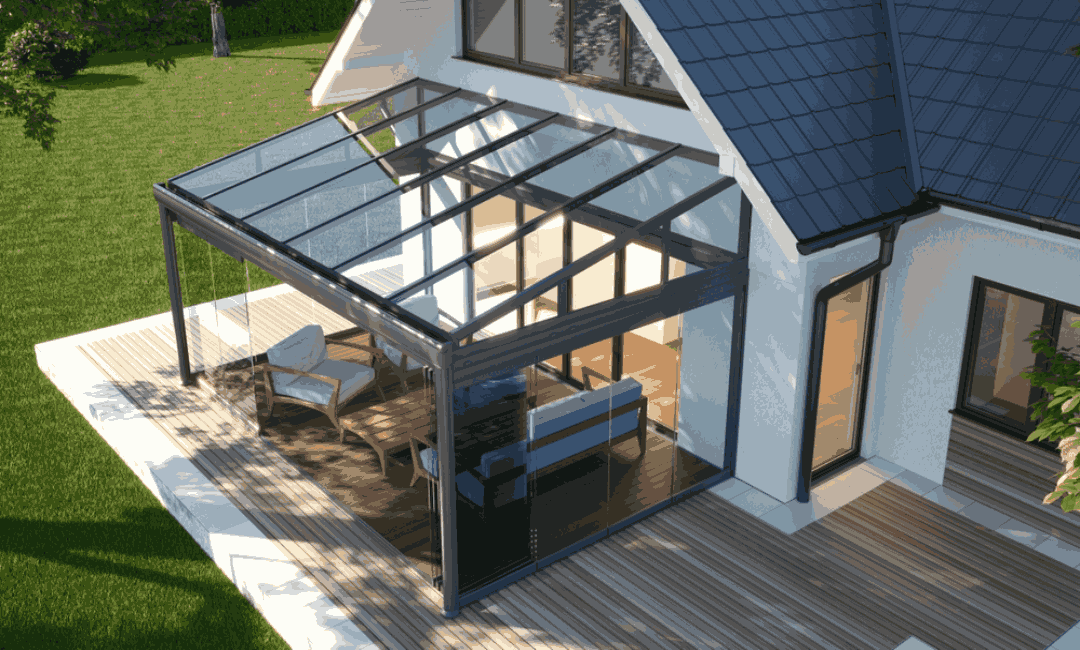
Frequently Asked Questions About Glass Ceiling Systems
-
Can a glass ceiling withstand heavy rain and snow?
Yes, with proper installation, reinforced frames, and drainage systems, glass ceilings are waterproof and durable against weather extremes. -
Are motorized glass ceilings easy to operate?
Absolutely. Motorized systems allow automated sliding, opening, or tilting, often with remote control or smart sensors. -
How long does installation take?
Installation time depends on size and complexity but generally ranges from a few days to two weeks for standard residential projects. -
Do glass ceilings require maintenance?
Maintenance is minimal; periodic cleaning and inspection of seals, motors, and drainage systems is recommended to ensure longevity. -
Can a glass ceiling be customized for unique architectural designs?
Yes, glass ceilings can be tailored in shape, size, and functionality, accommodating complex structures and design preferences. -
Are glass ceilings energy-efficient?
Yes. Modern insulated glass, UV coatings, and bioclimatic integration reduce energy consumption for heating and cooling.











